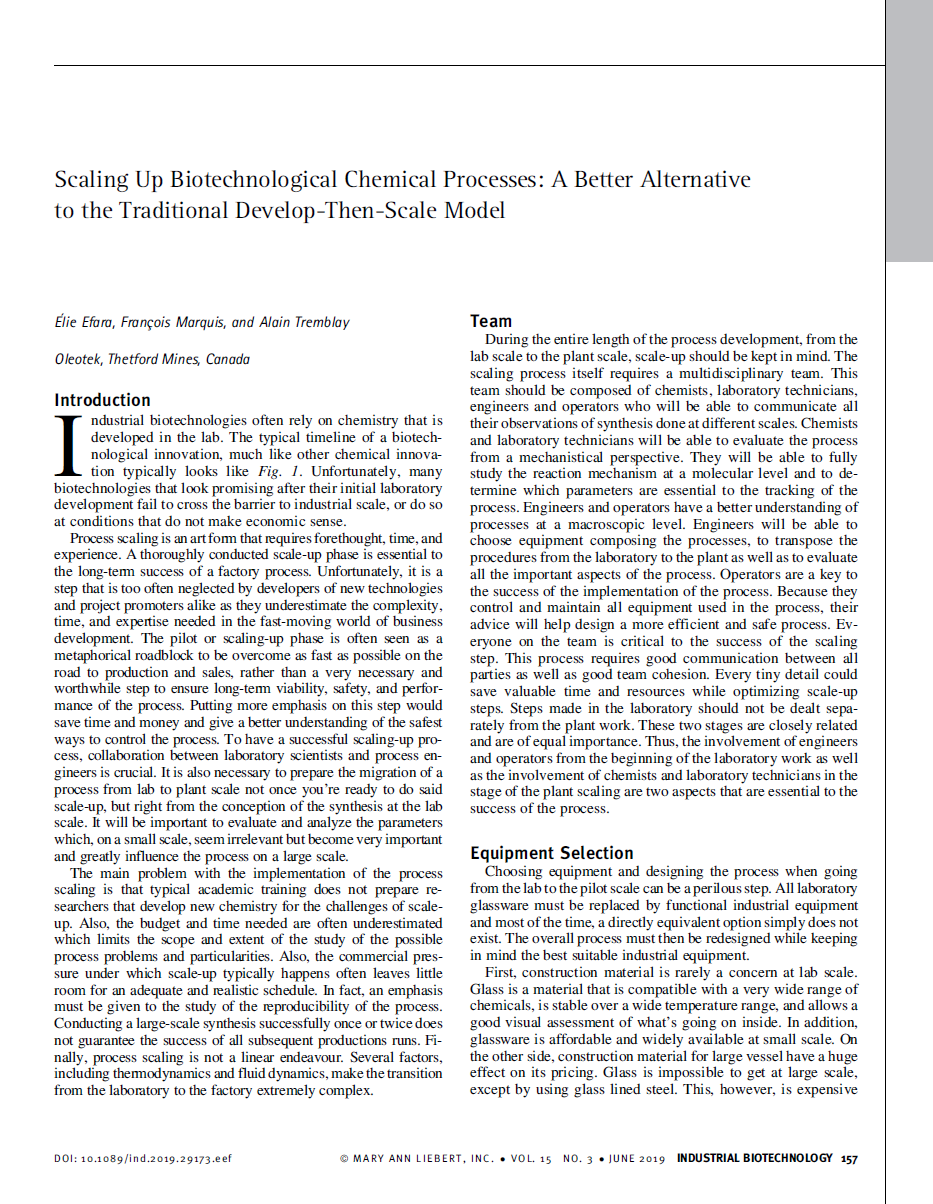Scaling Up Biotechnological Chemical Processes
Article publié dans Industrial Biotechnology, Jun 2019, 157-161
DOI: 10.1089/ind.2019.29173.eef
Scaling Up Biotechnological Chemical Processes: A Better Alternative to the Traditional Develop-Then-Scale Model
ABSTRACT
Industrial biotechnologies often rely on chemistry that is developed in the lab. The typical timeline of a biotechnological innovation, much like other chemical innovation typically looks like Fig. 1. Unfortunately, many biotechnologies that look promising after their initial laboratory development fail to cross the barrier to industrial scale, or do so at conditions that do not make economic sense. Process scaling is an art form that requires forethought, time, and experience. A thoroughly conducted scale-up phase is essential to the long-term success of a factory process. Unfortunately, it is a step that is too often neglected by developers of new technologies and project promoters alike as they underestimate the complexity, time, and expertise needed in the fast-moving world of business development. The pilot or scaling-up phase is often seen as a metaphorical roadblock to be overcome as fast as possible on the road to production and sales, rather than a very necessary and worthwhile step to ensure long-term viability, safety, and performance of the process. Putting more emphasis on this step would save time and money and give a better understanding of the safest ways to control the process. To have a successful scaling-up process, collaboration between laboratory scientists and process engineers is crucial. It is also necessary to prepare the migration of a process from lab to plant scale not once you’re ready to do said scale-up, but right from the conception of the synthesis at the lab scale. It will be important to evaluate and analyze the parameters which, on a small scale, seem irrelevant but become very important and greatly influence the process on a large scale. […]

